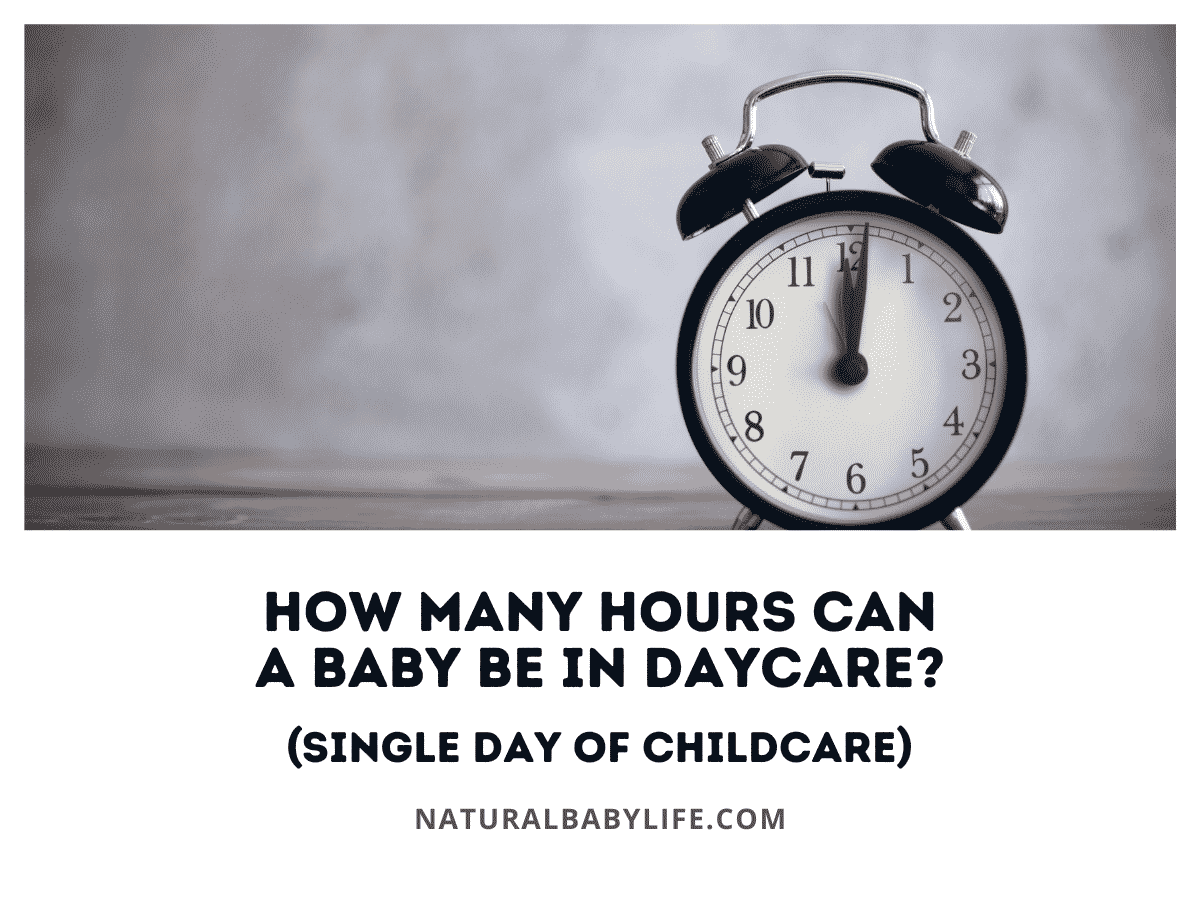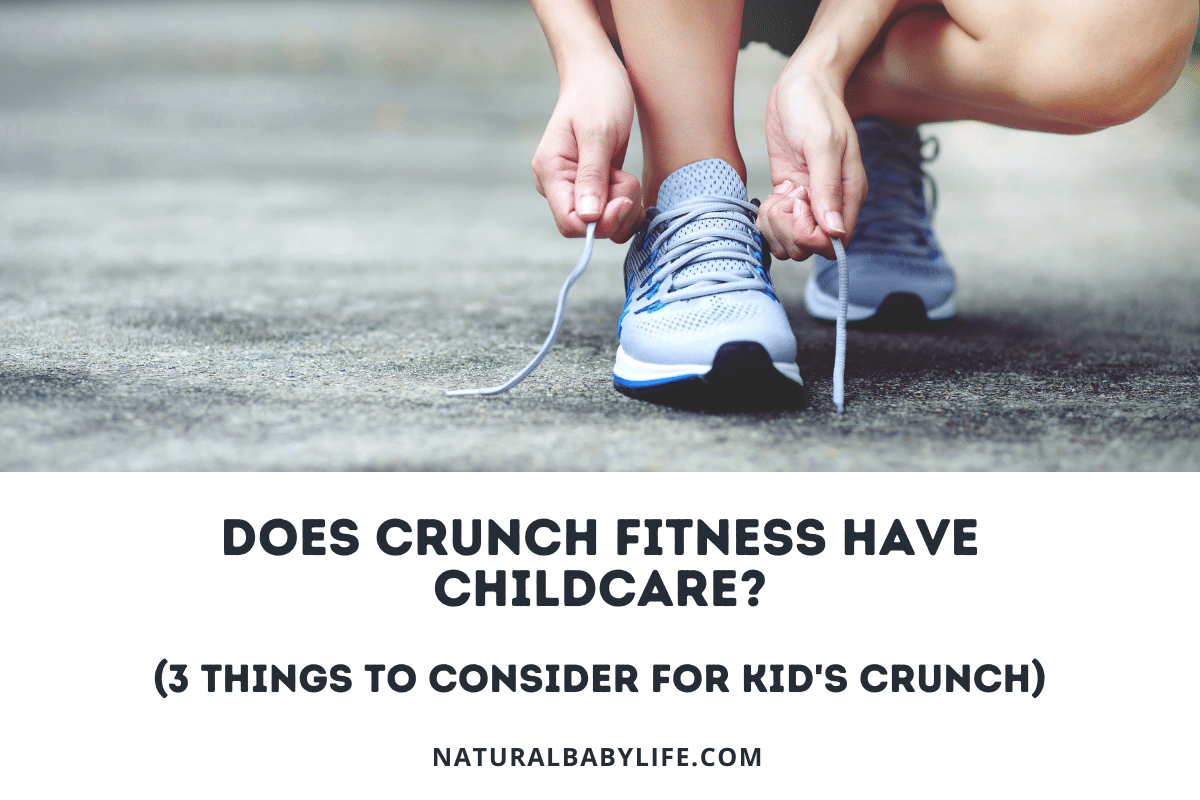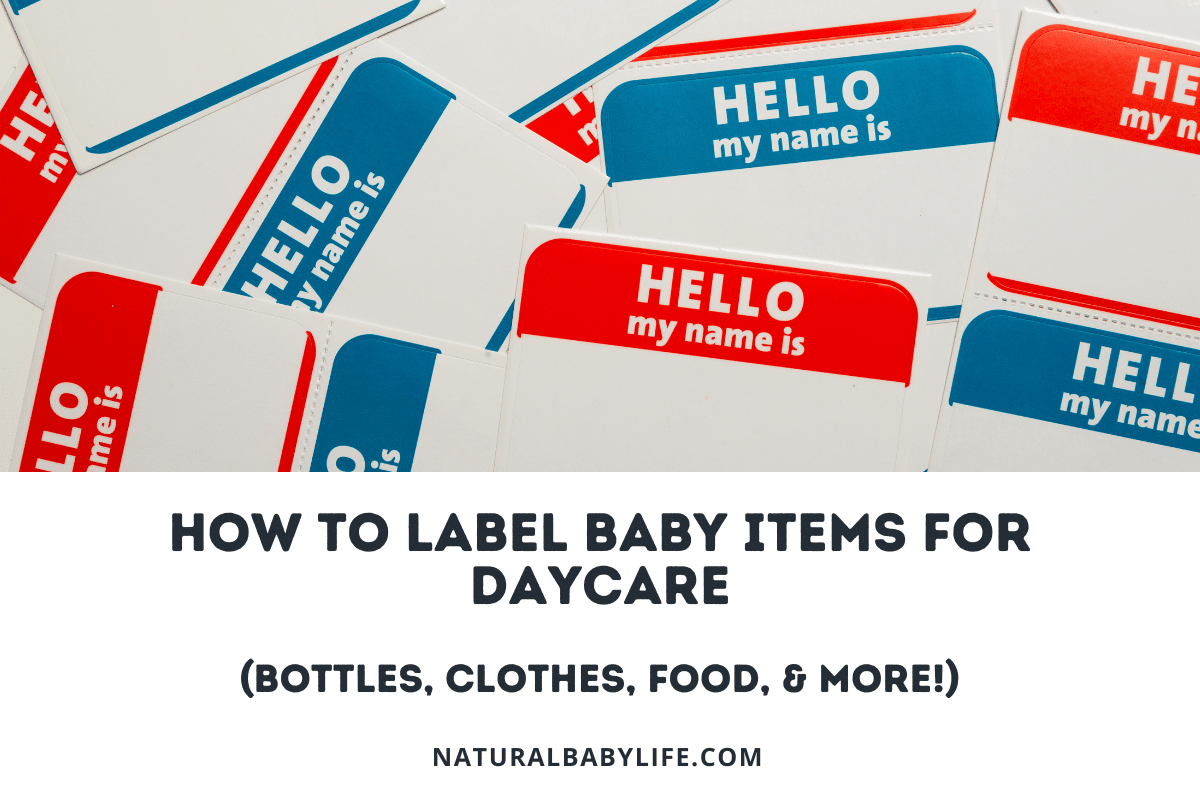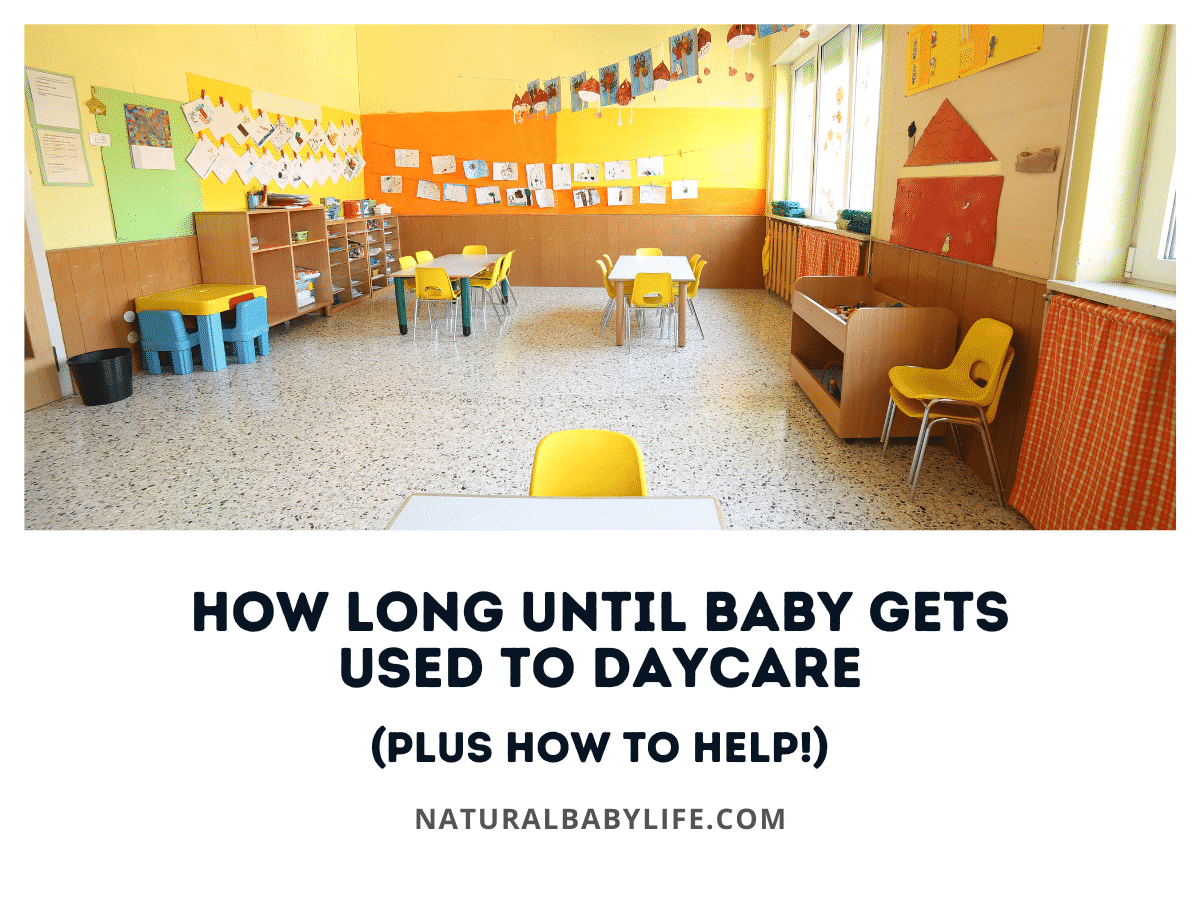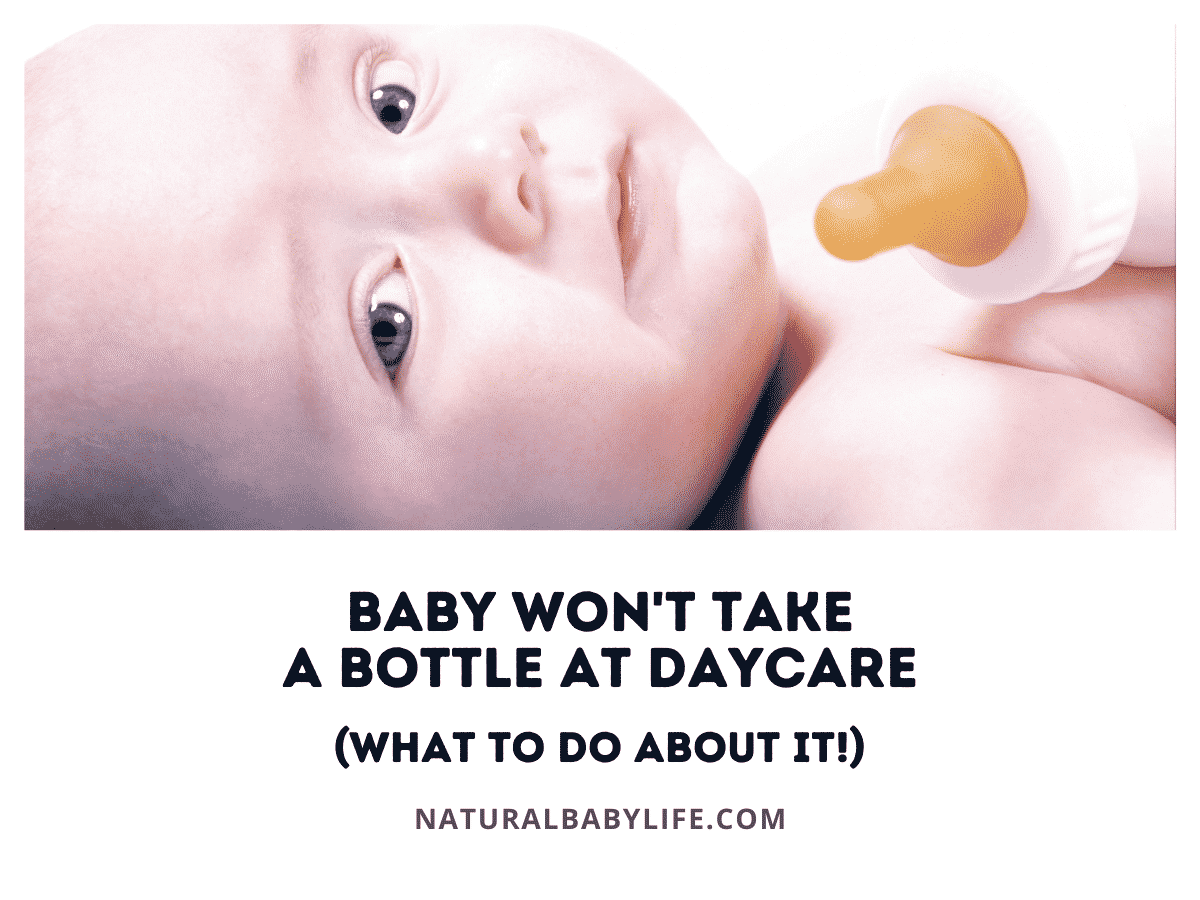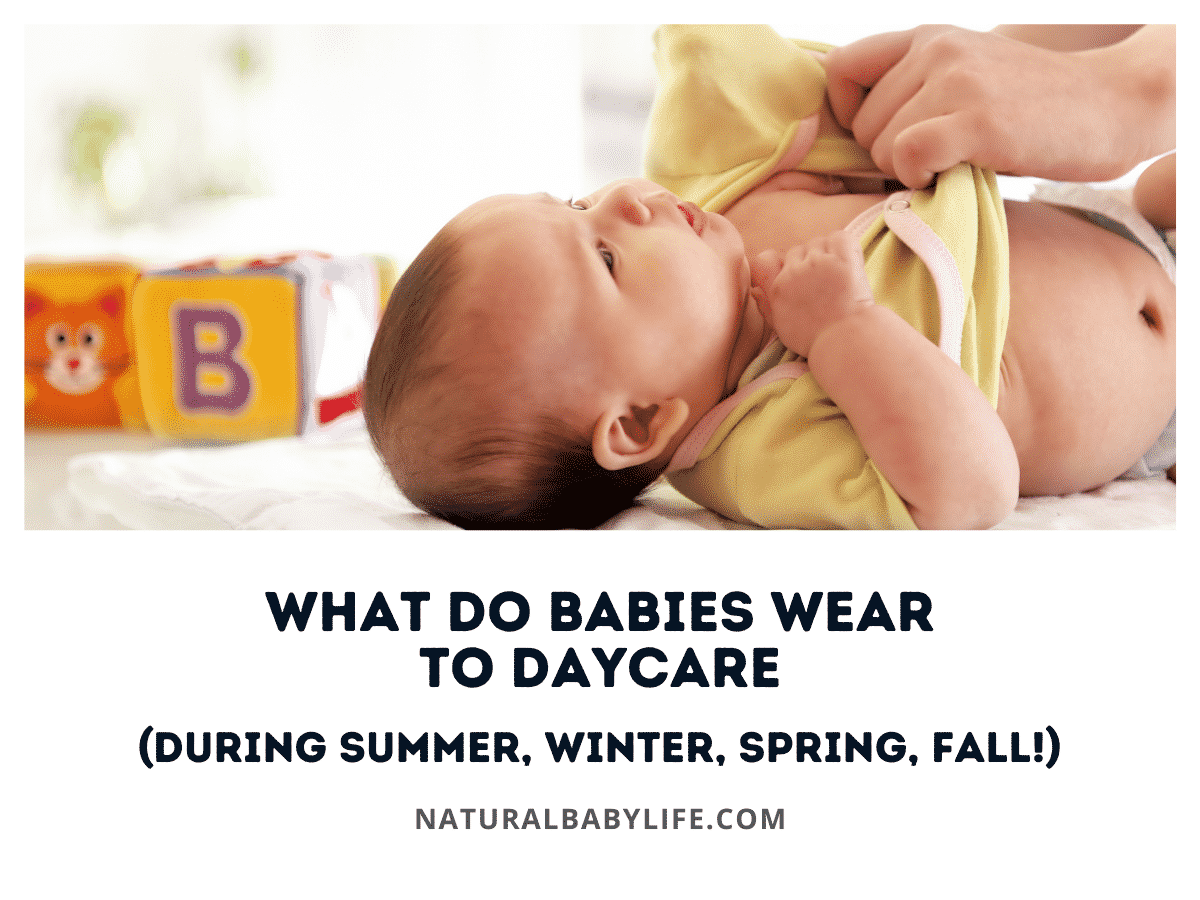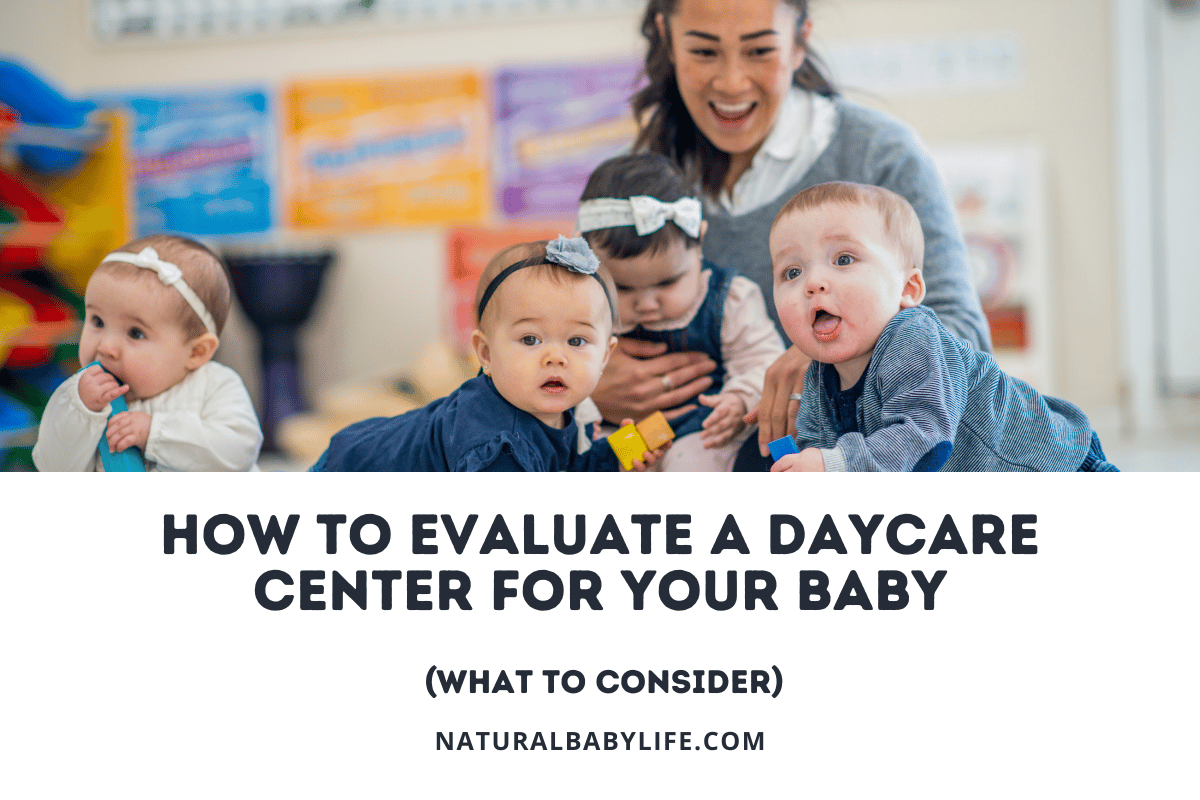More than half of American children under the age of 5 spend time in daycare. Spending time in childcare has both pros and cons, and any negative effects of daycare can increase with the amount of time spent in care but how much daycare is too much? How many hours can a baby be in daycare?
Most childcare centers limit parents to ten hours of care per day, leaving shift workers, nursing staff, and others who work odd hours seeking alternative solutions. While this may leave parents who need atypical childcare feeling as if they are not spending enough time with their child, research shows that children may fare better than expected.
Read on to learn more about both state and provider regulations, how to find childcare for 12-hour shifts, and just what are the effects of extended care.
Table of Contents
How long is too long for a baby to be in daycare?
Working parents are understandably worried about the amount of time their baby spends in care. Going back to work after maternity leave can be very emotional, especially if you work long hours.
It can be difficult to find a childcare provider willing to provide more than 10 hours of care per day, and it may even be legally limited in some areas.
I contacted representatives of state agencies responsible for early childhood education and childcare facility regulation across the United States and received responses from fifteen of them. Of these, only California and Utah have any restrictions on the number of hours a child can be left in daycare per day and that was 24 hours. Delaware has no restrictions, but the representative noted that 10-14 hours is standard. Mississippi limits the number of hours a child can stay at an hourly facility such as short-term childcare at a gym (8 hours per day or 45 per month), but does not limit the number of hours a child can stay at a licensed full-time care facility (ie daycare). Maine does not limit the number of hours a child can stay in daycare, but the representative did point out that the state subsidy caps at 50 hours, presumably making this the standard.
The potential negative effects of full-time childcare are compounded the more hours a child spends in care. Some studies show that the effects of childcare begin to increase after 30 hours of care per week, while others found little difference until the amount surpasses 45 hours.
How many hours is full-time childcare?
For most families, full-time childcare works out to be between 35-45 hours a week.
Full-time childcare typically consists of a child attending the program 5 days a week for 8 hours or more per day. Most daycare centers are typically open for 12 hours between the hours of 6:30 a.m. and 6:30 p.m. in order to accommodate the different work schedules of parents.
Most full-time jobs result in working 40 hours per week (8 hours per day), but with commute time factored in, some parents find themselves leaving their child in daycare closer to 9 or 10 hours per day.
What is the 10-hour rule for daycare?
The 10-hour rule for daycare is just what it sounds like – many providers place an upper limit on the amount of care provided for each child, and that limit is most often 10 hours.
In fact, some states even require it as a law. This can make finding childcare for longer periods difficult.
How to handle daycare for 12-hour shifts
When you work non-traditional hours, such as shift work, overnights, graveyard shift, or 12-hour nursing shifts, it can be a challenge finding childcare to accommodate your schedule.
Many people move closer to family for just this reason. After all, if your child can’t be with you then the next best thing is often grandma!
If leaving your child with a friend or family member is not an option, look for an in-home childcare provider who may be more likely to operate outside of the traditional hours. Extended hour daycare centers may also an option, especially in larger cities. 24-hour childcare centers do exist, although they may be difficult to find and even harder to get into due to high demand and waitlists.
You may encounter additional fees or higher rates for 12-hour shifts of childcare. This is in part due to the fact that many states have laws about the number of hours staff can work, and the center may have to hire more staff to cover extended hours and abide by current ratios.
You could use a website like Care.com to find a verified caregiver who has been reviewed by other parents and can even come to your own home to watch your children. Similarly, you could ask for recommendations from neighbors on local Facebook groups or sites like Nextdoor. If you and your child’s other parent are both working full-time, sometimes schedules can be arranged to where you are each working opposite shifts from each other. However, it is important to consider the effects an arrangement like this would have on your marriage.
One other alternative is to enroll your baby in traditional 10-hour daycare and then ask a friend or hire a neighbor to pick your child up and watch them at home for the remaining hours of your shift.
If all else fails, you could try to get together a childcare rotation with coworkers that you know and trust. After all, you probably aren’t the only parent in the company in this situation.
You may have to get creative, but there are plenty of solutions that can work out for you and your family if you need extended childcare for 10 or more hours per day.
Is all-day childcare okay for your baby?
Even if you are able to locate a childcare provider for your little one, you may understandably have some concerns about whether or not spending so much time away from mom and dad is a good idea.
Typically, children who attend daycare programs increase their time spent in care as they get older. A baby who is 3 months old may see more negative effects from all-day care than a child who is 3 years old. The younger your child is, the more they may benefit from staying with grandma, a nanny, or an in-home childcare situation. Older children are generally better equipped to deal with more chaotic settings such as preschools and daycare centers.
In recent years, much research has been done on the effects of daycare on child development. There are a few potential drawbacks to be aware of, although many of these issues can be mitigated with a little extra effort.
Potential negative effects of daycare on child development
While there are potential drawbacks of spending too much time in care, your child can still thrive and experience a loving environment if you find the right caregiver. The quality of the childcare center or provider you select is ultimately more important than how long they spend in care. Quality of care has been linked to a reduced risk of negative effects and is considered to be the best indicator of future outcomes.
Potential negative effects of spending long periods of time in daycare include:
- Weaker attachment to parents – Past studies have found that the more hours a child spends in care, the less positively engaged they were with their mothers. However, making an intentional effort to connect with your child when you do have them can help reverse this.
- Behavioral issues – While studies show a slight increase in behavioral issues at 30-45 hours of care per week, this risk increases markedly when the child is in care more than 45 hours per week.
These potential negative effects can be managed by reducing the number of hours spent in care, choosing a quality care provider, and working to foster a positive home environment for when your little one is at home with you.
Will daycare ruin my baby?
As parents, we all do what we need to do in order to make sure our kids are happy, healthy, and loved.
You should never feel guilty for working and earning a living to make a better life for you and your child. Attending daycare will NOT ruin your baby.
In fact, some studies show that spending time in daycare has increased academic and social benefits. Being able to bond with a caregiver, spend time socializing with other children, and have fun educational experiences at a childcare center are all great perks of daycare.
Although many two-parent households are able to make financial cutbacks in some areas in order to swing having one parent quit their job, in many homes, this is just not feasible. If you’ve taken a good look at your finances, including taking the cost of childcare into consideration, and it makes more sense for you to work, you shouldn’t feel guilty. And of course, for the millions of single parents out there, quitting your job to stay home simply isn’t a choice.
If you work a job that you hate with long hours and are struggling with guilt, remember that this too shall pass. Make a plan to go back to school or change your career path when possible and try to find some comfort in the fact that your baby won’t remember these years of their life anyway.
On the other hand, if you’ve chosen shift work or a 12-hour schedule by choice and you love your job, try to enjoy the perks that your schedule gives you. If you work 12-hour shifts 3 or 4 days a week, that means you have extra days off to spend with your little one. And if you work the graveyard shift, you’re taking great advantage of the time that your baby is asleep anyway.
In short, rest assured that you are doing the best you can, focus your efforts on finding quality childcare, and know that your little one will be just fine.

